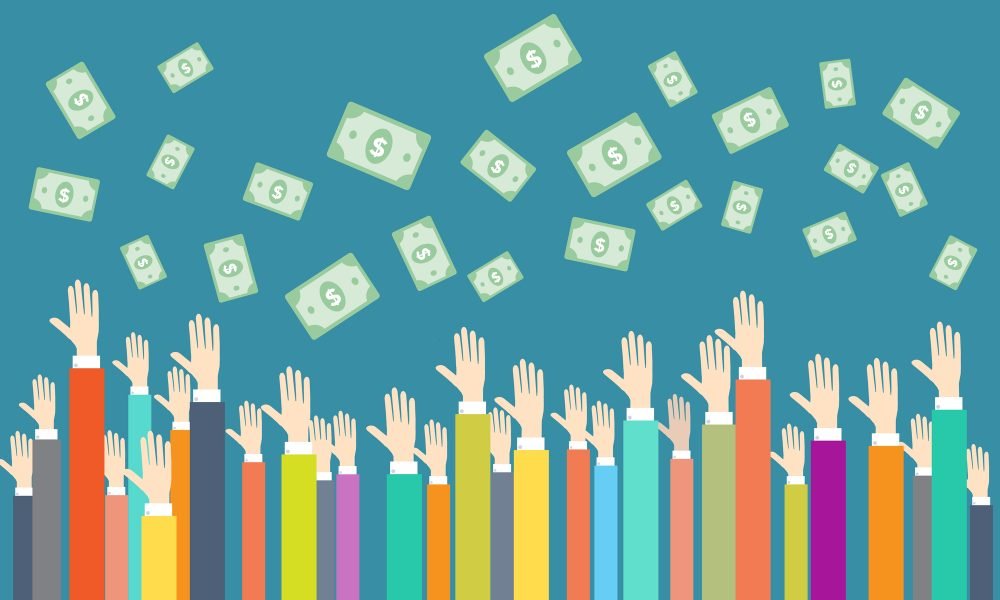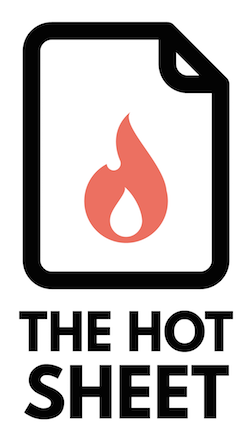
This article draws from my commentary and reporting that first appeared in The Hot Sheet.
In 2021, the US Department of Justice (DOJ) sued to block Penguin Random House’s acquisition of Simon & Schuster on antitrust grounds. Penguin Random House (PRH) is the biggest US publisher by a large margin and publishes about 15,000 titles per year. Acquiring another one of the Big Five publishers, Simon & Schuster, would create an even bigger giant in the US market.
In its first filing related to the case, the government granted authors something of a fairytale wish: it centered the role of authors in the publishing ecosystem. The complaint states, “Authors are the lifeblood of book publishing. Without authors, there would be no stories; no poetry; no biographies; no written discourse on history, arts, culture, society, or politics. … Penguin Random House’s proposed acquisition of Simon & Schuster would result in substantial harm to authors.”
But which authors? This is where the plot thickens. The DOJ’s case focuses on the “anticipated top selling books” that garner advances of $250,000 and up. For the purposes of this case, that included roughly 1,200 books, or about 2% of all books released by commercial publishers. The government focused on proving how advances for top-selling authors would decline should PRH be allowed to acquire Simon & Schuster. The DOJ wrote in its initial filing that “hundreds” of authors would have “fewer alternatives and less leverage.” Hundreds. Canadian publisher Ken Whyte offered his clear take on this with the headline Justice for the .001%, and that’s a good summary of how I see it, too.
During trial, the DOJ argued advances for anticipated bestsellers could decline by as much as 20 percent should the merger happen. So, some quick math: if Hillary Clinton was paid $14 million for her memoir, maybe she’d only get $11 million for her next one. Or, consider Amy Schumer, who received $9 million for an essay collection. She might get a couple million less. Would they still write their books anyway? Would they suffer if they received a lower advance? (Would anyone care?)
I admit I’m being glib. Some have rightly pointed out that a $250,000 advance isn’t all that much for a Big Five publisher—or for an author either. After it’s broken into four installments and an agent takes 15 percent, that’s little more than $50,000 per installment for the author, spread out over a few years, before taxes. During trial, big publishers admitted that the large majority of advances do not earn out, which isn’t necessarily considered a failure for the author, just part of publishing’s business model. That effectively results in a higher royalty rate, and I have to wonder if the entire industry would be better off with higher royalty rates in the contract (especially for ebooks, where rates are widely considered too low by agents), and advances that quickly earn out. I’ll come back to that later. Here’s the bigger and more important point that I think gets missed repeatedly in trial coverage.
Most author advances would not be affected by the merger.
When you read op-eds about this case, most assume or imply there will be trickle-down effects that reduce all authors’ earnings, not just those receiving $250k or more. Yet the government’s modeling and its key economic expert project only that harm will come to authors of anticipated top-selling books. In fact, testimony indicated that authors receiving lower advances could benefit. The defense argued that the government didn’t want to use a lower advance figure of $50,000 as a cutoff for their antitrust case because it would have undermined their argument for market harm: There are no negative effects at that advance level, at least based on the economic modeling presented at trial. It was shown that, as a result of the merger between Penguin and Random House in 2013, advances for anticipated top-selling books decreased by about $100,000, while for all other books, advances stayed flat or moved up a bit.
Furthermore: as a collective group, authors and publishers outside the Big Five have been gaining in market share for years.
At the trial, PRH’s CEO testified the company had lost market share over the last decade, so one way for PRH to regain market share is through mergers and acquisitions. NPD Bookscan, which tracks print sales, has reported that the largest share of book sales belongs to publishers outside of the top 15 in the US, and that effect is likely even more pronounced on the digital side. More titles are released each year than ever before, and there is no evidence that mergers have led to decreased diversity in publishing and less opportunity for authors. In fact, history demonstrates the opposite.
Professor Dan Sinykin, who has studied the conglomerization of publishing, recently offered the following insight:
If the merger does end up happening, it will be an incremental continuation of the same trajectory we’ve seen in publishing for decades. It’s a mistake to think that the ongoing conglomeration will lead directly to the destruction of literature. A lot of interesting things are generated in resistance to conglomeration. The nonprofit presses exist as a direct result of it. There’s a dialectical relationship to what kind of literature is made possible because of conglomeration; it’s not simply a one-sided foreclosing of the possibilities for literature. And even within the conglomerates, authors always bring creativity to structural limits.
In order to see what’s truly limiting the possibilities for what kind of literature is published, you actually have to look much more broadly, at the class structure in the US, like who gets to go to MFA programs, who actually gets opportunities, and the deep nepotism involved in mentor–mentee relationships that all happen before you even get to an agent submitting a query to a publishing house. The merger between PRH and S&S draws our attention to this much larger set of networked problems, but in and of itself, this case is a drop in a 50-year bucket.
When the acquisition was first announced in 2020 (before the DOJ filed suit), Peter Osnos of the independent publishing house PublicAffairs said, “It’s natural, understandable, predictable that people will want to look at the downside. And it turns out there may not be quite the downside they think. That’s my slightly contrarian view.” He thought it might be a good thing, in fact, for Simon & Schuster to be run by a corporate parent that’s primarily focused on book publishing (that’s Bertelsmann), rather than a media company focused on streaming video. And you don’t even have to be contrarian to believe that as the Big Five or Big Four become narrowly focused on producing hits, that leaves more room for small publishers and innovators.
Ultimately, the DOJ may be entirely wrong about what happens to author earnings as a result of the Simon & Schuster purchase. But let’s say advances did decline. Is it possible an acquisition could lead to other outcomes that offer a net positive, like better marketing and promotion? What if lowered advances made it possible for small presses to compete for great authors? Or what if the acquisition led publishers to pay better royalties?
I know, it’s crazy to think authors might have more leverage or options in a Big Four situation. But consider the pace of technological progress and changing socioeconomic conditions. Maybe some authors would boycott a Big Four. Maybe authors would look for different kinds of deals from smaller publishers who pay higher royalties and offer more control. Maybe there are new types of publishers and media companies (see: Webtoon, Radish, Wattpad) and a future creator economy that gives writers more power and freedom to step away from average or poor deals. There are all kinds of potential outcomes, and the consolidation of legacy publishers represents the late stage of a possibly declining business model. In the long history of the written word, authors have found ways to adapt to new conditions and continue in their work. The greatest are forever remembered. In comparison, publishers are ephemeral and largely forgotten.
In a 2011 article about the Penguin merger with Random House, Planet Money’s Adam Davidson wrote, “It’s difficult to imagine how, in the digital world, publishers could ever monopolize the sale of written material. Even if there were only one house left, it would compete with every blogger and self-published ebook author. Eventually, it’s likely that book publishing will embody both conflicting visions of digital-age commerce—lots of small businesses and a few massive ones that handle big-ticket items.”
Little is likely to change in commercial publishing no matter the outcome.
The big dogs remain the big dogs. Mega advances will still be paid, and it will remain challenging to make a living if you’re the average author (as it has been throughout history if you depend on book sales alone). This is about protecting the status quo, not making progress—although I would argue that, even if the deal moves ahead, you still get the status quo. Either way, Simon & Schuster gets sold to another of the Big Five or maybe a financial buyer.
Notably, in its first response to the news of the DOJ’s filing, the Authors Guild said, “Unless the Biden Administration and Congress address antitrust reform in relation to Amazon’s practices, preventing the PRH/S&S merger will do little to reduce harm to authors and the publishing industry as a whole and may injure mid-list authors short term.” And also: “We look forward to working with the Biden Administration on antitrust reform that gets to the root of the problems in the industry, whereas the proposed merger was just a symptom.” Indeed.
Michael Cader, writing in Publishers Lunch, has perhaps the best summary of where we are now (subscription required): “Antitrust trials are technical and complicated and have little to do with the nuances of the businesses involved. They are about market definition, market concentration, and market constraints, and about pricing power and econometric models. … The government brought a very focused case about the small set of authors and deals that win contracts of $250,000 or more every year (or about 1,200 projects a year, as we learned). It was the DOJ, not anyone in publishing, that had no regard—in an antitrust case—for the other tens of thousands of authors and books brought to market every year.”
If you enjoyed this post, you’ll probably enjoy my paid newsletter, The Hot Sheet, which offers insights into the book publishing industry for an audience of authors and other business professionals.

Jane Friedman has spent nearly 25 years working in the book publishing industry, with a focus on author education and trend reporting. She is the editor of The Hot Sheet, the essential publishing industry newsletter for authors, and was named Publishing Commentator of the Year by Digital Book World in 2023. Her latest book is The Business of Being a Writer (University of Chicago Press), which received a starred review from Library Journal. In addition to serving on grant panels for the National Endowment for the Arts and the Creative Work Fund, she works with organizations such as The Authors Guild to bring transparency to the business of publishing.


Thanks for this. As one of those people who doesn’t get $250K+ advances, it’s been difficult to assess what this case means to me. The issue of Amazon’s practices, however, is certainly relevant to my bottom line.